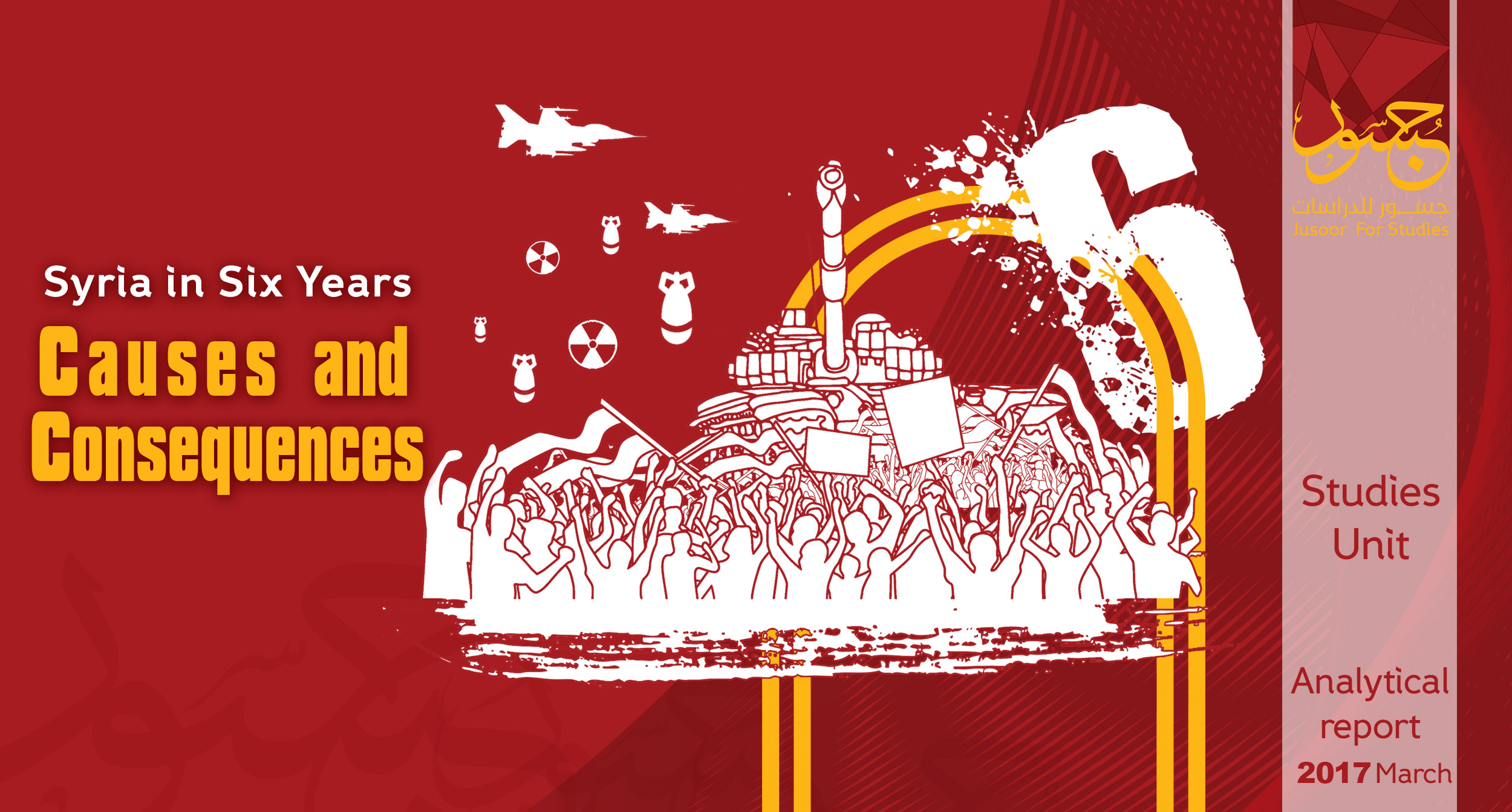Syria in Six Years: Causes and Consequences
The outbreak of popular protests in Syria in March 2011 was a turning point in the country’s modern political history. It has also transformed the entire region after Syria turned into the scene for a proxy war involving approximately 40 countries and non-state actors in addition to a multiplicity of fighters from 90 countries.
These events have had an impact on both the Syrian state and society. Hundreds of new Syrian actors have emerged to take many new roles , whose size and influence have changed dramatically. The Syrian regime, which used to control all aspects of life in Syria through extreme forms of oppression in March 2011 had lost control of two thirds of Syrian territory by the end of 2012. The state of fear it had constructed has collapsed. Police officers who used to spread terror among citizens as they passed in the street were now seen making statements in videos, appearing as hostages or after having deserted their posts.
Meanwhile, opposition factions experienced an even faster transition from having no presence in 2011 to taking control over the majority of Syrian territory by 2012. However, these groups have faced internal fragmentation and corrosion as members have left to join other groups such as ISIL.
Similarly, Kurdish militias have also seen their position transformed from having almost no presence in 2011 to having influence at the regional and international levels. These militias have succeeded in establishing a semi-independent entity and winning the support of international actors, including disputing countries that are seldom in agreement on any point.
On the sixth anniversary of the outbreak of popular protests in Syria, this report analyzes the situation of emerging Syrian actors throughout the past six years and their likely prospects for 2017. The report is essentially about internal actors and will not discuss foreign actors, whether state or non-state actors.
To read the report in full can download an PDF version








